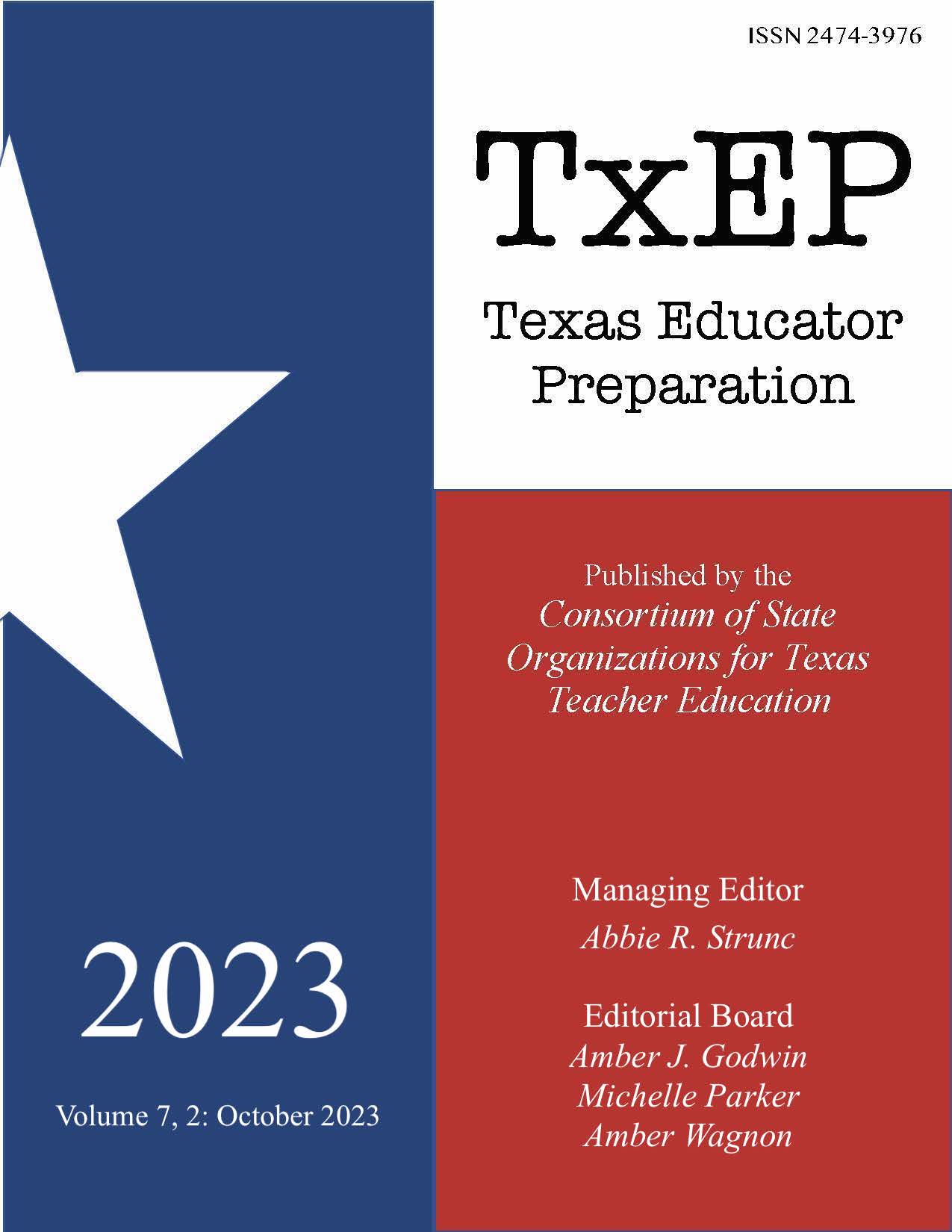Assessing Pre-service Teachers’ Attitudes and Perceptions of Using Artificial Intelligence in the Classroom
DOI:
https://doi.org/10.59719/txep.v7i2.35Keywords:
Pre-service teachers, Artificial Intelligence, PreK, ECHEAbstract
Artificial Intelligence in Education (AIED) is a powerful innovative technology that has the potential to dramatically change the way we teach students. While the possibilities are promising, there is still much to learn about how PreK-12 teachers will use AI in the classroom. Current pre-service teachers are graduating with limited exposure to AI and entering a field they could possibly be dominated by AI in a few short years. To understand the role teacher preparation programs, play in teaching students about AI, this study aimed to understand the current attitudes and perceptions of pre-service teachers toward AIED. Three areas of interest were uncovered, pre-service teachers’ knowledge and self-efficacy in the use of AI, pre-service teachers’ beliefs about using AI in their future classrooms, and pre-service teachers’ views of the necessity of AI being taught in teacher preparation programs. The hope is that this article will uncover the need to prepare pre-service teachers for utilizing AI in education.
Downloads
References
Albion, P.R. (2001). Some Factors in the Development of Self-Efficacy Beliefs for Computer Use Among Teacher Education Students. Journal of Technology and Teacher Education, 9(3), 321-347. Norfolk, VA: Society for Information Technology & Teacher Education. Retrieved September 2, 2023 from https://www.learntechlib.org/primary/p/8368/
Bryant, J., Heitz, C., Sanghvi, S., & Wagle, D. (2020). How artificial intelligence will impact K-12 teachers. Retrieved Sept, 01, 2023.
Luckin, R., Holmes, W., Griffiths, M. & Forcier, L. B. (2016). Intelligence Unleashed. An argument for AI in Education. London: Pearson
Piaget, J., & Inhelder, B. (1969). The psychology of the child. Basic Books
U.S. Department of Education, Office of Educational Technology, Artificial Intelligence and Future of Teaching and Learning: Insights and Recommendations, Washington DC., 2023.
Vygotsky, L. (1962). Thought and language. (E. Hanfmann & G. Vakar, Eds.). MIT Press
Walton Family Foundation (March, 1 2023). Teachers and students embrace ChatGPT for education. https://www.waltonfamilyfoundation.org/learning/teachers-and-students-embrace-chatgpt-for-education
Zawacki-Richter, O., Marín, V.I., Bond, M. et al. Systematic review of research on artificial intelligence applications in higher education – where are the educators?. Int J Educ Technol High Educ 16, 39 (2019). https://doi.org/10.1186/s41239-019-0171-0





